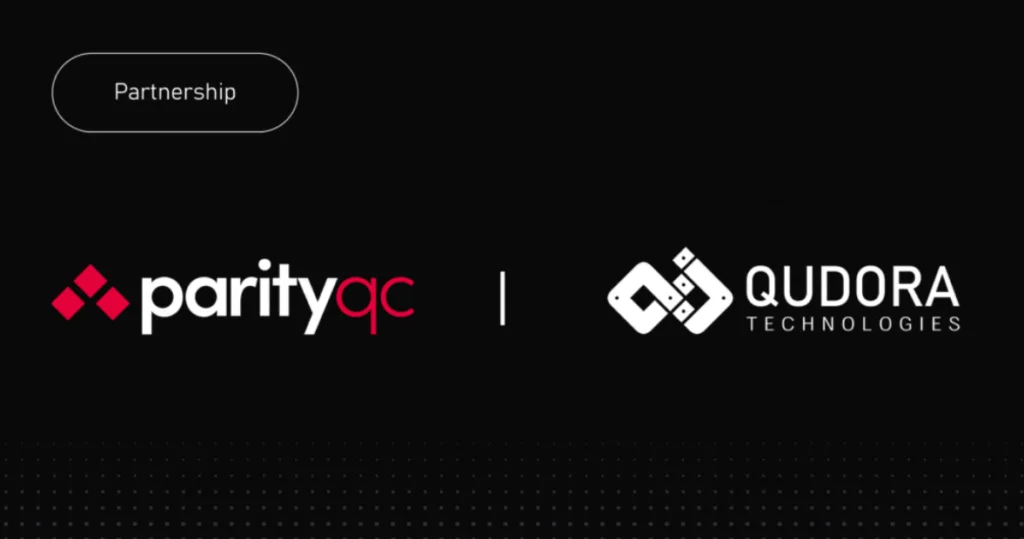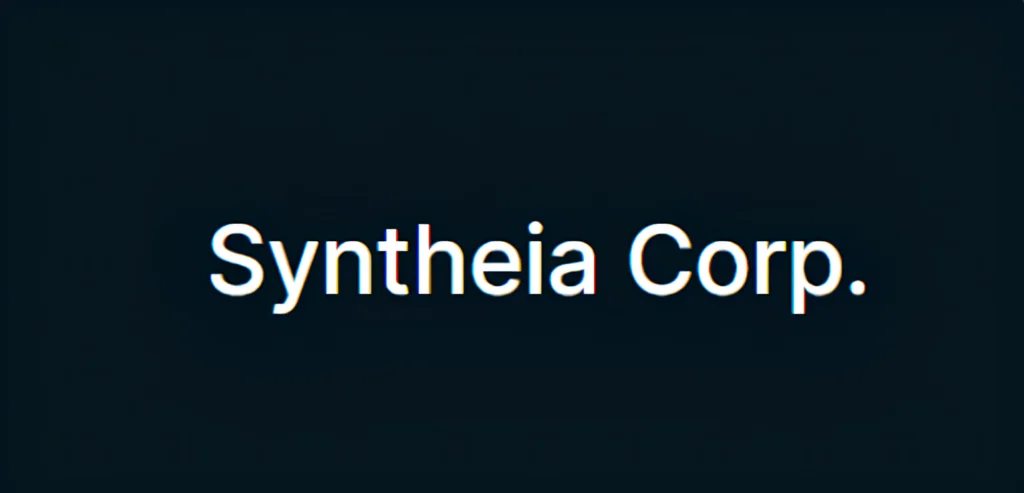
Unfortunately, it’s the last in TQD’s series on Scientific Advisors Shaping Quantum 2.0 For Industry. So, here it is, folks — Part 6, Advisors: 106–126.
*All data correct as of late August 2021
106. Marten Teitsma: Advisory Council, SheQuantum
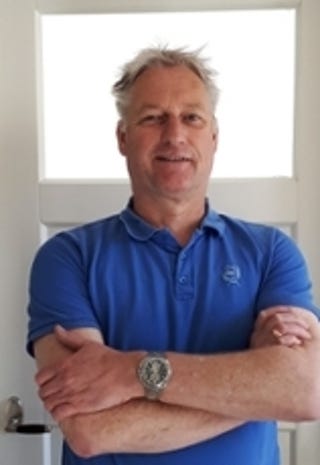

Marten Teitsma is a Professor by special appointment of Applied Quantum Computing at the Amsterdam University of Applied Sciences (AUAS). The Chair was established in collaboration with SIA, CWI, Capgemini and the AUAS. Marten Teitsma is active in Quantum Amsterdam as Education Lead and in organizing public and business meet-ups.
Together with Dutch banks, Teitsma developed a workshop General Awareness Quantum Computing for laymen, at the AUAS, a minor program in Applied Quantum Computing and the Technical Physics program with a specialization in Quantum Technology. His research focuses on Quantum Software Engineering and the responsible use of this new technology.
Teitsma received his Ph.D. in AI from VU Amsterdam.
107. Greg Viggiano: Advisory Council, SheQuantum
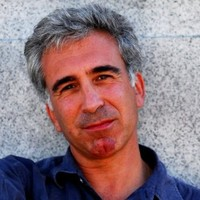
Greg Viggiano is an Adjunct Professor of QC and AI at the Department of Physics, George Mason University, where he instructs graduate and undergraduate students with a focus on the social impacts of using new technologies — specifically the convergence between AI and quantum computing.
A self-starting entrepreneur and academic who creates value from ideas, Viggiano’s specialties lie in business development, product management, marketing, and public relations. With over twenty years of progressive global experience in product and project management — having developed a wide range of technology products and services — he optimizes productivity, quality, and creativity among teams while possessing a demonstrated ability to improve business processes across federal, nonprofit, software, IT, telecommunication, healthcare, manufacturing, and retail sectors.
Viggiano received a Ph.D. in Mass Communications/Media Studies from Florida State University.
108. Daniel Stancil: Advisory Council, SheQuantum
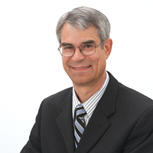
When not advising SheQuantum, Daniel Stancil is the Executive Director, IBM Q Hub at North Carolina State University.
Stancil has a passion for promoting Electrical and Computer Engineering (ECE) as a profession, and for promoting innovative approaches to ECE education. In this regard, he is an enthusiastic supporter of the ECE Department Heads Association (ECEDHA), the Institute of Electrical and Electronics Engineers (IEEE) and the FIRST Robotics Competition.
His research has included such varied topics as magnetic films, optics, microwaves, wireless channels, antennas, remote labs, and particle physics. Technology for distributing wireless signals through HVAC ducts that Stancil and his students developed (commercialized as iDUCT) has been installed in such major buildings as Chicago’s Trump Towers and McCormick Place Convention Center. The demonstration of neutrino communications by a multidisciplinary team coordinated by Stancil was recognized by Physics World Magazine as one of the top 10 Physics Breakthroughs of 2012. Additional recognitions that his work has received have included an IR 100 Award and a Photonics Circle of Excellence Award. Stancil is a Fellow of the Institute of Electrical and Electronics Engineers and a past president of the IEEE Magnetics Society.
Stancil has a Ph.D. in Electrical Engineering from MIT.
109. Arun Kumar Pati: Advisory Council, SheQuantum
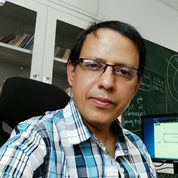
One more impressive individual whose expert guidance and scientific credentials on the SheQuantu Advisory Council assure the company’s success is Arun Kumar Pati, a Professor at the Quantum Information and Computation Group, Harish-Chandra Research Institute (HRI), India.
Before joining HRI, he was a scientist at Theoretical Physics Division, BARC, Mumbai for over two decades. During his tenure at BARC, he was a visiting scientist at the University of Wales, Bangor, UK from 1998–2000. Then he was on deputation to the Institute of Physics, Bhubaneswar, India from 2001–2010.
He has visited and delivered talks at many Universities and Institutes including the University of Bristol, UK, MSRI, Berkely, University of California, MIT, Boston, USA, Bell Lab, NJ, USA, Naval Research Lab, Washington DC, USA, JPL, NASA, USA, University of South Carolina, USA, University of New Mexico, USA, Perimeter Institute, Waterloo, Canada and many more.
Pati’s research areas include all aspects of quantum information and quantum computation, the theory of geometric phases and their applications, and the foundations of quantum mechanics. Among his important discoveries are the No-Deletion theorem, Geometric Phases for mixed state, Remote State Preparation protocol, the No-Hiding Theorem, and the Stronger Uncertainty Relations in quantum mechanics. He has more than 150 research papers in international journals and conferences on these topics. He has edited two books: Quantum Information with Continuous Variables and Quantum Aspects of Life. His research papers have been highlighted in Nature, Nature Asia, Science, and many national and international newspapers.
Pati obtained his Ph.D. in Physics from the University of Bombay, Mumbai.
110. Zoltan Zimboras: Advisory Council, SheQuantum
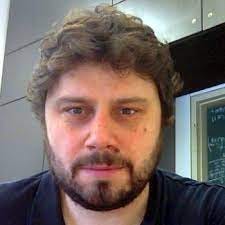
Another individual on SheQuantum’s Advisory Council, Zoltán Zimborás is a Quantum Information Scientist working on structural aspects of Quantum Computing, Quantum Control and Entanglement Theory. Zimborás is currently a Research Associate Professor and Head of the Quantum Computing and Information Group at the Wigner Research Centre for Physics in Budapest, Hungary.
Zimborás was selected as one of the Emerging Talents, a title “recognizing the best early-career researchers in each research community” by the Journal of Physics A. He is a member of several editorial boards (PLoS One, Frontiers in Quantum Computing), and is also a member of the board of QWorld, a non-profit organization that aims to develop teaching material (including open-source software) for quantum programming at all levels.
He obtained his Ph.D. in Theoretical and Mathematical Physics from Eötvös University in Budapest.
111. Rajagopal Nagarajan: Advisory Council, SheQuantum
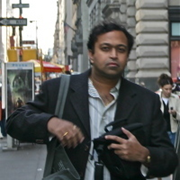
Rajagopal Nagarajan is on the SheQuantum Advisory Council and a member of academic staff at Middlesex University where he leads the Foundations of Computing Group.
Before that, he was a member of the academic staff in the Department of Computer Science at the University of Warwick. Within the department, he belonged to the Foundations of Computer Science Research Group. He was also affiliated with the Warwick Institute for Financial Computing and the Centre for Discrete Mathematics and its Applications (DIMAP).
He received his Ph.D. from Imperial College London where he was also a postdoctoral researcher. Previously he was employed by the University of Calgary, Canada, and ATC-NY, USA. He has an M.S. from the University of Delaware and a B.Tech. from IIT Madras, India. His research interests include quantum information processing, security and cryptography, programming languages, and formal verification.
112. Anima Anandkumar: Advisory Council, SheQuantum
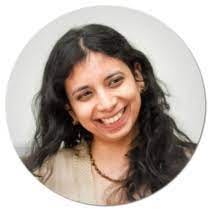
The first of three talented women with a position on SheQuantum’s Advisory Board, Animashree Anandkumar is a Bren Professor at Caltech and Director of ML Research at NVIDIA.
Prior to this, she was a Principal Scientist at Amazon Web Services and has received several honours such as Alfred. P. Sloan Fellowship, NSF Career Award, Young investigator awards from DoD, and Faculty Fellowships from Microsoft, Google, Facebook, and Adobe.
She is part of the World Economic Forum’s Expert Network and is passionate about designing principled AI algorithms and applying them in interdisciplinary applications.
Her research focus is on unsupervised AI, optimization, and tensor methods.
She obtained a Ph.D. in Electrical Engineering from Cornell University.
113. Jessica Rosenberg: Advisory Council, SheQuantum
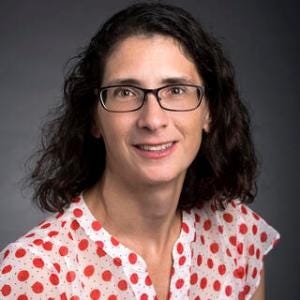
The second woman changing SheQuantum’s fate is Jessica Rosenberg, the Education Director of the Quantum Materials Center and an Associate Professor of Physics and Astronomy at George Mason University.
Rosenberg received an NSF CAREER award, an AAAS Science and Technology Policy Fellowship in the NSF Office of the Director and has been PI on NSF STEM education projects.
When she is not unravelling the mysteries of the universe as an astrophysicist, she works to improve the education and retention of a diverse group of students in the STEM disciplines and builds new models of graduate student preparation. She has developed and implemented educational programs that span K-20, researched improvements to STEM classroom education, and examined how scientific research projects can have a broader impact on society through research, education, and outreach.
As the Director of Education for the Quantum Materials Center, Rosenberg is building internship programs, transdisciplinary undergraduate experiences and broadening graduate student preparation for the workforce. As quantum grows as an industry, she is committed to creating programs aimed at developing a diverse quantum workforce.
Rosenberg received her Ph.D. in Astrophysics from the University of Massachusetts Amherst.
114. Archana Kamal: Advisory Council, SheQuantum

The last of a trio of talented female advisors for SheQuantum is Archana Kamal, who leads the QUEST group (Quantum Engineering Science and Technology) at UMass Lowell, which focuses on proposing and investigating macroscopic quantum systems that are engineerable like classical machines, while intrinsically behaving quantum-mechanically like atoms.
Kamal’s work has enabled noise-resilient superconducting artificial atoms (or “qubits”), several schemes for quantum-limited measurement and amplification and new protocols for nonreciprocal information transfer between quantum and classical systems.
Her research in nonreciprocal quantum signal processing was recognized by MIT Technology Review with TR 35 under 35 Global Innovator award in the `Visionaries’ category. She was also recently awarded the AFOSR Young Investigator and NSF-CAREER awards for her research in high-fidelity information processing with open quantum systems. Some of the current themes of her research include developing scalable protocols for generation and control of entangled states, nonlinear quantum systems for high-fidelity readout and amplification, and applications of quantum information concepts to tackle questions in early Universe cosmology and thermodynamics.
Kamal obtained her Ph.D. in Physics from Yale University.
115. Tamas Terlaky: Advisory Council, SheQuantum
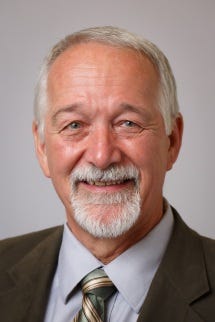
Tamas Terlaky is a George N. and Soteria Kledaras ’87 Endowed Chair Professor Department of Industrial and Systems Engineering, Lehigh University, Director of the Quantum Computing Optimization Laboratory and on SheQuantum’s Advisory Council. He was also the Chair of the Department of Industrial and Systems Engineering in 2008–2017, and the Founding Director of the School of Computational Engineering and Science 2004–2008 at McMaster University, Canada.
Terlaky has published four books, edited over ten books and journal special issues and published over 200 research papers. Topics include theoretical and algorithmic foundations of operations research (e.g., the invention of the criss-cross method), design and analysis of large classes of interior point methods, computational optimization, worst-case examples of the central path, nuclear reactor core reloading optimization, oil refinery and VLSI design optimization, robust radiation therapy treatment optimization, and inmate assignment optimization.
His research interest includes high-performance optimization methods, optimization modelling, optimization problems in engineering sciences and service systems, and quantum computing optimization.
Terlaky is the Founding Editor-in-Chief of the journal, Optimization and Engineering. He has served as associate editor of ten journals and has served as conference chair, conference organizer, and distinguished invited speaker at conferences all over the world. He was general Chair of the INFORMS 2015 Annual Meeting, a former Chair of INFORMS’ Optimization Society, Chair of the ICCOPT Steering Committee of the Mathematical Optimization Society, Chair of the SIAM AG Optimization. He received the MITACS Mentorship Award, the Award of Merit of CORS, Egerváry Award of HORS, OISS Award of IISE. He is a Fellow of INFORMS, SIAM, The Fields Institute, and an elected Fellow of the Canadian Academy of Engineering.
Terlaky has a Ph.D. in Operations Research from Eötvös University
116. Prem Kumar: Advisory Council, SheQuantum
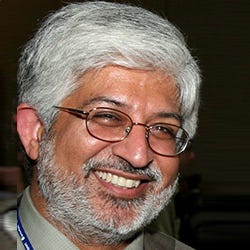
Prem Kumar is the last individual on SheQuantum’s Advisory Council, Founder and Principal owner of the quantum optical instrumentation company NuCrypt and a Professor of Information Technology in the McCormick School of Engineering and Applied Science at Northwestern University, with a primary appointment in the Electrical and Computer Engineering Department and a courtesy appointment in the Physics and Astronomy Department. This dual appointment allows him to recruit students from both disciplines into his group, a privilege that has proven extremely beneficial for his research interests that lie at the interface of basic quantum science and applied information technology.
Because of this interdisciplinary exposure, Ph.D. graduates from his research group (35 completed, five in progress) have gone on to build careers in academia, industry, and national labs throughout the world. His current research focus is on quantum communications and networking for interconnecting future quantum computing and sensing systems. His group has cumulatively published >500 research papers (Google Scholar h-index: 61). Kumar has served as a Program Manager at DARPA, where he managed a portfolio of programs in basic and applied sciences. He received the Program Manager of the Year award in 2015 and the Secretary of Defense Medal for Outstanding Public Service in 2016. Kumar co-authored the National Academies report: Optics and Photonics: Essential Technologies for Our Nation, which spawned the National Photonics Initiative (NPI).
Currently, he serves on the NPI Steering Committee, lending his expertise to issues pertaining to the National Quantum Initiative. Kumar is a Fellow of all the relevant professional societies: OSA, APS, IEEE, IoP (U.K.), AAAS, and SPIE. Currently, he serves as Editor-in-Chief of Optica, the flagship high-impact journal of The Optical Society (OSA). He has been a Distinguished Lecturer for the IEEE Photonics Society, Hermann A. Haus Lecturer at MIT, recipient of the Quantum Communication Award from Tamagawa University in Tokyo, Japan, and the Walder Research Excellence Award from the Provost’s office at Northwestern University.
Kumar obtained a Ph.D. in Physics from the University at Buffalo.
117. Jennifer Farver: Advisor, Super.Tech
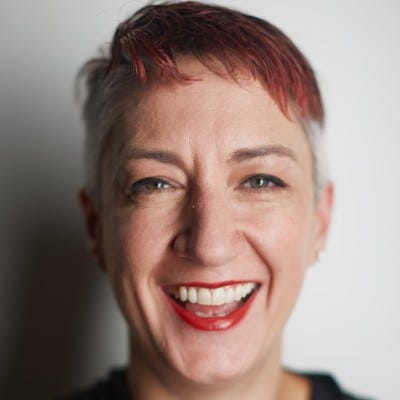
Jennifer Farver is an Advisor at quantum software startup Super.Tech and a technology leader with experience in high-growth startups. Farver is also the Co-CEO at 8th Light, an occasional speaker and on-and-off academic.
She has a particular interest in building software that users love, making data analytics practical and impactful, creating great teams and workplaces for technologists, and growing the size and impact of the Chicago tech community.
Farver received a Ph.D. in Civil Engineering from MIT where she researched network algorithms and optimization, transportation systems, route guidance, operations research, and AI.
118. Topias Uotila: Consultant, Unitary Zero Space
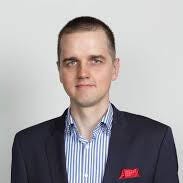
Topias Uotila is a Founder and Consultant of Unitary Zero Space, a technology-independent quantum computing and quantum technology services company that educates and advises its clients in creating and securing business in the second quantum revolution.
Uotila leads businesses in industries ranging from ICT technology to marketing services in all possible life cycle phases. He has run a business of more than 300 million euros in revenue, an organization with more than 100 employees and made deals on both sides of the table with the largest contracts valued in the tens of millions of euros.
Uotila has always been interested in leadership and strategic management while closely following the emerging game-changing technologies like AI, cyber security, 3D printing, and blockchain applications — and especially quantum computing. His speeches on these topics in conferences around Europe have gathered audiences in the hundreds.
He has an MS.c in Computer Science from the Helsinki University of Technology (TKK).
119. Risto Hakala: Consultant, Unitary Zero Space
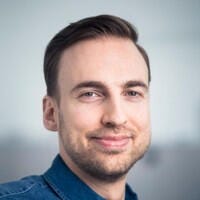
Risto Hakala is a Consultant at Unitary Zero Space and Chief Specialist at National Cyber Security Centre Finland where he evaluates the security of several commercial encryption products (e.g., VPNs) by reviewing their code and design and testing their implementation.
He has worked in cybersecurity for 15 years, mainly with cryptographic algorithms and security product evaluations.
Hakala obtained his Ph.D. in Theoretical Computer Science from Aalto University.
120. Juha Muhonen: Consultant, Unitary Zero Space
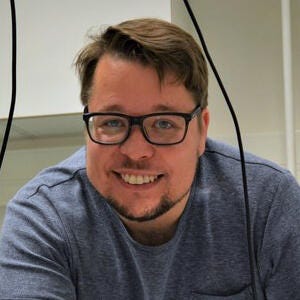
Unitary Zero Space’s final Consultant is quantum physicist Juha Muhonen, an Associate Professor at the Jyväskylä University Department of Physics.
His research focuses on quantum computing hardware technologies, particularly creating hybrid quantum systems in silicon with the current main directions being coupling of donor spins to mechanical and photonic elements and photonic crystal optomechanical structures. The goal of this is to produce new functionalities for quantum sensing and quantum computing as well as an on-chip platform for creating and studying semi-macroscopic quantum states.
Muhonen has a joint Ph.D. in Physics from Aalto University and the University of Warwick.
121. Andrew Childs: Scientific Advisory Board, Zapata Computing
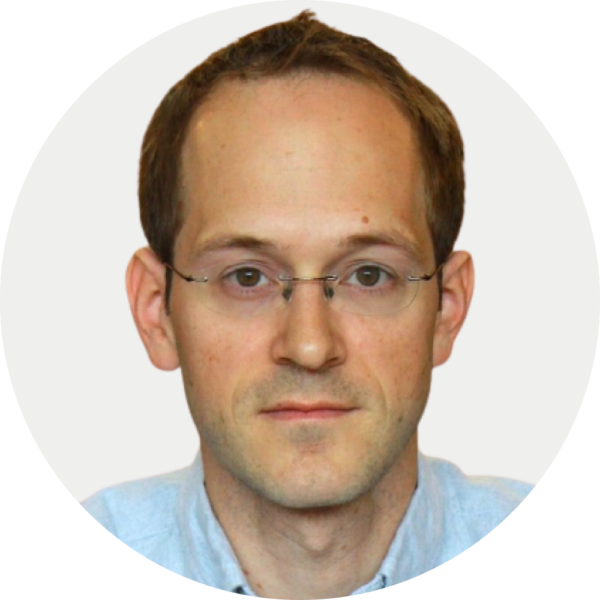
Andrew Childs is the first of five fantastic individuals who sit on Zapata Computing’s Scientific Advisory Board.
A Professor in the Department of Computer Science and Institute for Advanced Computer Studies at the University of Maryland, Childs also co-directs the Joint Center for Quantum Information and Computer Science, a partnership between the University of Maryland and the National Institute of Standards and Technology.
Childs is known for his work on quantum computing, especially on the development of quantum algorithms. He helped to develop the concept of a quantum walk leading to an example of exponential quantum speedup and algorithms for spatial search, formula evaluation, and universal computation. He also developed quantum algorithms for algebraic problems and for simulating quantum systems.
Childs received a Ph.D. in Physics from MIT.
122. Aram Harrow: Scientific Advisory Board, Zapata Computing
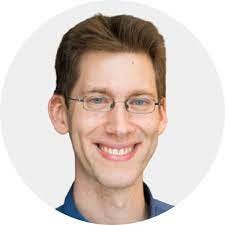
An Associate Professor of Physics at the MIT Center for Theoretical Physics, Aram Harrow works in quantum information science and quantum computing.
Together with Avinatan Hassidim and Seth Lloyd, he designed a quantum algorithm for linear systems of equations, which in some cases exhibits an exponential advantage over the best classical algorithms. The algorithm has wide application in quantum machine learning.
Harrow is a steering committee member of Quantum Information Processing (QIP), the largest annual conference in the field of quantum computing and a co-administrator of SciRate, a free and open access scientific collaboration network. Harrow also co-runs a blog, The Quantum Pontiff. His collaborators include Peter Shor and Charles H. Bennett.
Harrow has a Ph.D. in Physics from MIT.
123. Arthur Jaffe: Scientific Advisory Board, Zapata Computing
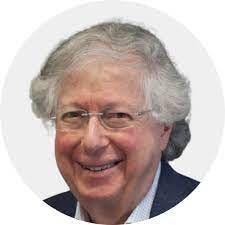
Arthur Jaffe is a mathematical physicist at Harvard University, where in 1985 he succeeded George Mackey as the Landon T. Clay Professor of Mathematics and Theoretical Science.
With James Glimm, Jaffe founded the subject called constructive quantum field theory. Their major achievement was to establish existence theorems for two- and three-dimensional examples of non-linear, relativistic quantum fields.
He was awarded the Dannie Heineman Prize for Mathematical Physics in 1980. In 2012 he became a fellow of the American Mathematical Society.
Jaffe obtained a Ph.D. in Physics from Princeton University.
124. Jens Eisert: Scientific Advisory Board, Zapata Computing
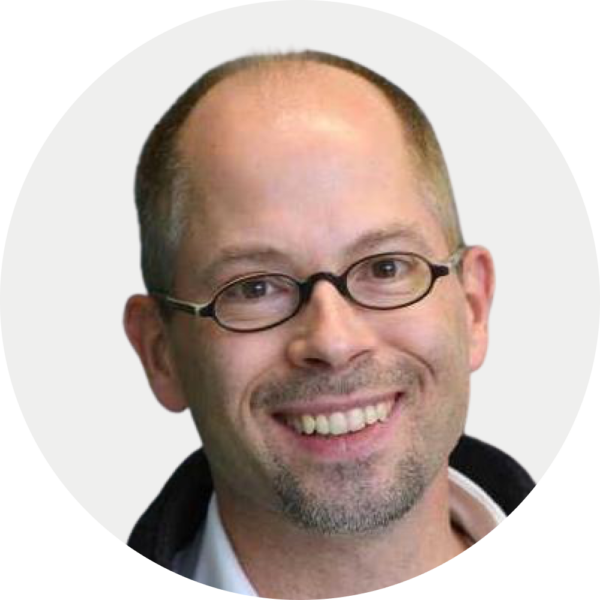
Along with his duties at Zapata Computing, Jens Eisert is Professor of Quantum Physics at Freie Universität Berlin.
He is known for his research in and has made numerous contributions to quantum information science and quantum many-body theory in condensed matter physics, making significant contributions on entanglement theory and the study of quantum computational models, as well as quantum optical implementations of protocols in quantum technologies and the study of complex quantum systems. He is also notable as one of the co-pioneers of quantum game theory with Maciej Lewenstein and Ph.D. advisor Martin Wilkens.
Eisert also happens to be a divisional associate editor of the Physical Review Letters.
125. Peter Love: Scientific Advisory Board, Zapata Computing
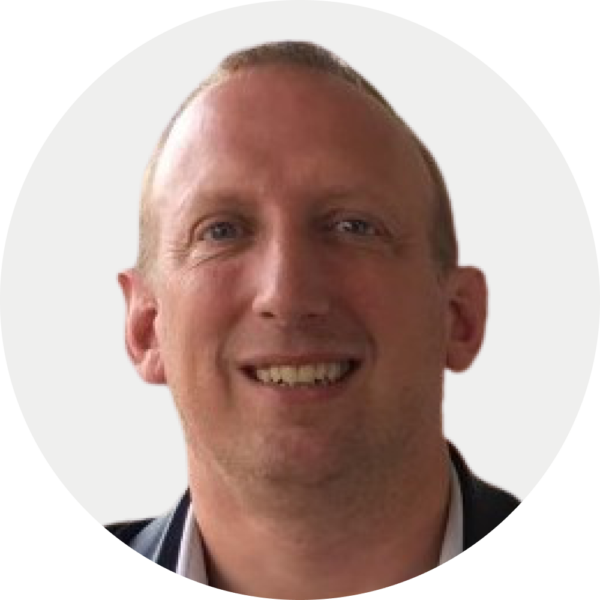
Peter Love combines being an Associate Professor in the Department of Physics and Astronomy at Tufts University with his role on the Scientific Advisory Board at Zapata Computing.
With expertise that includes quantum information, quantum simulation, adiabatic quantum computation, and computational physics, Love’s research aims to confront the sector’s conundrums head-on such as what quantum computers are good for, how they can be built and how quantum information will contribute if technological obstacles to constructing a large scale quantum computer prove insuperable.
Love has a DPhil in Physics from the University of Oxford.
126. Will Oliver: Scientific Advisory Board, Zapata Computing

At last, we come to the end of the road, with Will Oliver — the final person on Zapata Computing’s Scientific Advisory Board and the individual to end this long list of scientific minds whose acumen is adding greatly to the quantum tech ecosystem.
An Associate Professor of Electrical Engineering and Computer Science and Lincoln Laboratory Fellow at MIT, Director of the MIT Center for Quantum Engineering, and Associate Director of the MIT Research Laboratory of Electronics, Oliver provides programmatic and technical leadership targeting the development of quantum and classical high-performance computing technologies.
Oliver’s research interests include the materials growth, fabrication, design, and measurement of superconducting qubits, as well as the development of cryogenic packaging and control electronics involving cryogenic CMOS and single-flux quantum digital logic.
Oliver is a Fellow of the American Physical Society, serves on the US Committee for Superconducting Electronics and is an IEEE Applied Superconductivity Conference (ASC) Board Member.
He received his Ph.D. in Electrical Engineering from Stanford University.
Hope you enjoyed this series!
Up next, a long-form listicle piece on amazing hardware specialists in the quantum tech industry. It should be pretty interesting.
The Quantum Insider (TQI)

Just in case this list hasn’t satisfied your cravings for data on scientific advisors in the quantum space, you can pop on over to The Quantum Insider (TQI), TQD’s very own data platform. Here you can find deep and insightful information on all aspects of the QIS industry.
TQI is an invaluable resource for journalists, researchers, investors, companies, and government agencies looking to extend their knowledge of the growing quantum tech ecosystem!
Deep Tech Insider (DTI)

Interested in other niches of deep tech? Good, TQD team has that covered, too: Check out the Deep Tech Insider, the best place for news on all that is happening in the world of deep tech.
For more market insights, check out our latest quantum computing news here.











